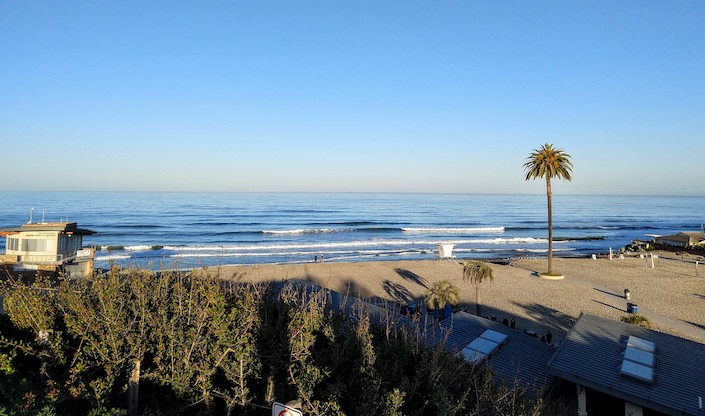
The “Cost of Living” Conundrum
Wow, those last couple posts about money brought a few haters out of the woodwork!
In case you missed them, I’m talking about the post sharing our family’s spending in 2018 and the post about paying off my student loans.
I got a bunch of readers who were super supportive and enthusiastic, which was unexpected and very much appreciated. I got many a “Congratulations!!!” message about the student loans, as well as a lot of great questions about the details of our lifestyle and debt repayment.
It was overall really fun to share all that information with the internet world.
Bad News: Apparently I Lied. A Lot.
Then there were the negative comments. The “None of this is possible!” and the “You’re making up these numbers!” and the “This is just because your parents are bankrolling you!”
This is all really good information for me to have, because I was previously unaware that my parents were giving me lots of money and that the things we’re doing with our money are impossible.
And then we had the comments that bring us to the subject of today’s post: “Your town isn’t high COL if you only spent $80k last year for a family of 4. But good for you.” (Ummm…thanks?)
My favorite COL-related complainer said he “looked up my town” and he “could get a 4-bedroom there for less than $500k, so it’s not high COL like in San Diego.” He made it very clear to me that he lives in San Diego, which is high COL.
And my town is not San Diego or anywhere in SoCal, and therefore it’s not a high COL place. Apparently.
What is COL Anyway?
“Cost of Living” or “COL” is defined, per Wikipedia, as “the cost of maintaining a certain standard of living.” Note how many vague terms are part of the definition; you’ll find a similar lack of clarity in most other sources when they try to distill the definition down to one sentence.
In its more descriptive definitions, COL involves a whole bunch of averages and is often used to compare different geographic locations.
COL can (but doesn’t always) include consideration of things like household incomes, available salaries, access to transportation and to medical care, rents, home prices, utility costs, taxes, gas and grocery prices, and so on. This complex definition makes COL a very dynamic concept. It’s not a single hard number like what one person could pay for one specific house or what I personally spent on my family last year.
When you read about COL online, the number 100 is often used as the average COL in the U.S.A.
Any way you plug in the numbers, my town has an above-average COL when compared to the U.S. averages. If Mr. Comments doesn’t want to call that “high COL” I guess that’s fine.
In this case the line between above-average and high is pretty arbitrary and neither label changes the reasons I’ve been sharing publicly about our finances.
But Housing Prices…!
As stated above, I do not live in San Diego or any other large fancy city. Yes, my current house would cost more if it was in a really nice part of SoCal. Also, per the online calculator, our hypothetical median income as a family of 4 would go up and our grocery bill would go down. But those three things are only part of what COL is, and the fact that my house would be more expensive if it was parked near Mission Bay (but my avocados would be cheaper!) is only part of the equation.
I took those numbers Mr. Comments used to determine that my town is not high COL and plugged them into the internet for his town. And whaddya know there are dozens of 4-bedroom homes for sale in San Diego (not including the surrounding sprawl) for less than $500k. So by his reasoning, neither of us live in high COL places because a 4-bedroom house can be had for a sweet half-mill. The logic is flawless.
COL and House Hacking
This seems like a good time to point out that San Diego also allows you live in tent villages under freeways, which my town does not (and you might freeze to death if you tried that here). So THAT means I could live cheaper in San Diego than I do here, right? Same holds true in Honolulu, which is also known for its high cost of living. Free housing in temperate climates for everyone!
Living in a tent to save money might seem a tad too extreme (although at this point I think we all know people who have lived long-term out of RVs or Sprinters because #vanlife). But there are also plenty of college and grad school students out there, living on the cheap in ultra-fancy towns with a traditional roof over their heads. I know some of them, and I’m sure you do too.
Getting creative with your living situation in order to save money is not particularly uncommon, and a willingness to do so changes your entire COL game. My generation calls it “house hacking” (toss that into a search engine if you’re unfamiliar with the term) and it’s gaining popularity with each passing year, particularly in financial independence and early retirement forums.
My point here is that living in a place with a “high COL” designation (however you want to define it) does not automatically mean that you must throw a ton of money down the drain for your accommodations.
COL Worldwide
Another fun fact while we’re on this topic: NONE of our fancypants cities here in the U.S. made Global Finance’s “Cities with the Highest COL” top 10 as of the end of 2018.
Of the top 12 cities, 9 were in Southeast Asia or Africa, with the other 3 being in Switzerland. New York came in at #13. California didn’t even show up until #28 (San Francisco), after Noumea (I had to look it up too).
You can find other lists of “most expensive” cities (such as those provided through the EIU’s surveys) with NYC and LA in the top 10, but even those lovely concrete jungles rarely show up in the top 5 worldwide.
Does the above information make San Diego a “low COL” place to live? Obviously not. Because we’re talking about averages and comparisons and a whole lot of different values when we talk about COL, and it’s not as simple as whose house costs the most.
The Magic of the Moving Van
I do feel this is an important part of this whole equation: If you find yourself living in Expensive Fancyville and think we’ve got it so super easy over here with our $499k 4-bedroom homes, I have great news: you can move here.
I have moved over a dozen times in my adult life. It is something people all over the world frequently do for personal, financial, and career-related reasons. People even move to places where they don’t know anyone, to different states or different countries, and they move with spouses and kids in tow (I have done all of these types of moves to varying degrees). Moving will not kill you.
If the COL where you are is not worth it to you, get outta dodge. If you choose to stay, realize that you are choosing to stay. Everything is a trade-off, and no place is perfect.
Is It Just Me?
After receiving the comments/complaints that I was lying about my spending I obviously had to message two of my BFFs. They happen to live in Switzerland and Seattle – both notoriously expensive places. Yet both of my friends manage to live quite well without blowing a fortune.
And no, they are not single 22 year-olds living in vans by a river or heirs to family fortunes roaming the globe on their parents’ dime. They are both part of two-income households with various numbers of dogs and kids and vacation days – all the usual trappings of a “normal” life, in that respect. But they live on way less than average for their respective locations.
It turns out they get the exact same responses when they share about their financial choices, plans, and budgets. It’s not possible! Those numbers aren’t right! That doesn’t count because (reasons)!
So at least I’m not alone. But this begs the question: Why are the masses so willing to internalize and share articles like this one and this one, lamenting the plight of first-world families “struggling” on six-figure incomes or claiming that “3 kids on a salary of $250k just isn’t enough”…. but when we say “Hey, we’re making it work in a pricey location for not as much as you’d think” we get some variation of being told we’re faking it?
It’s All LIES!
My conclusion is that the “cost of living” concept has gone the way of the “cost of raising children” and the “cost of education”.
We want so badly to believe these things are wildly outside of our control, because then it’s not our responsibility to keep our spending in check.
If someone claims to be living a good life while spending less than what we consider normal – on kids or education or “cost of living” – we get suspicious.
Never mind that we believe it without hesitation when people do things previously thought to be humanly impossible like run a sub-5-minute mile, even if we haven’t personally accomplished that feat or even seen it happen. Record-breaking mile time that scientists and doctors said was impossible? Congratulations! Well-controlled spending and a high quality of life in a nice place? Liar!
Certainly no one is really getting all ready for a newborn baby for $350 or getting a degree that gives you a six-figure salary without any student debt or driving reliable and safe cars that’s don’t cost very much.
Lies! All of it!
Even more ridiculous is the idea that a family could live in a great location and have a luxurious life for less than $80k a year. . .
Right?

P.S. A few more comments on California:
I managed to write this whole post without mentioning the fact that we lived in Southern California for over 2 years, on much less money than we spend now. We got married on Coronado Island and have spent a ton of time in San Diego over the years, our most recent trip there being last month.
We really love that whole area, so take the snark about the tent villages with a grain of salt. It was a happy coincidence that Mr. Comments felt the need to bring San Diego into the COL comparisons. If he had been ranting about Hong Kong I would have had less to say about it.
There is absolutely a reason that California has a reputation for being pricey, but there are many people other than myself who have made a good life for themselves there on a reasonable budget. Seattle Friend was one of them, for the better part of 4 years.
Fortunately we now both know that our very enjoyable low-budget lifestyles in Cali were impossible. We probably just imagined the whole thing.
